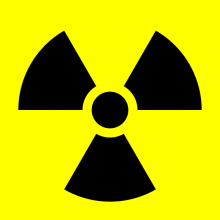The third round of nuclear negotiations between the six major world powers and Iran ended much the same as the first two: without a breakthrough, but with yet another meeting on the calendar. However, both sides appeared to be standing their ground regarding Iran’s enriching nuclear fuel to a research-grade in the clearest indication yet that diplomacy may be running out of steam.
The P5+1—the United States, the United Kingdom, France, Russia, China and Germany—met with Iran in Moscow over the past two days in discussions trying to reach confidence-building steps to reduce tensions over Tehran’s nuclear program. However, following the Russian round of talks, which followed meetings in Istanbul and Baghdad, the only point agreed upon was another round of meetings on July 3 in Istanbul. Unlike the previous “next round” announcements, this upcoming meeting will be only at the “technical-level,” with a “political-level” meeting as of yet unscheduled.
European Union foreign policy chief Catherine Ashton said in a press statement regarding the latest talks, “We set out our respective positions in what were detailed, tough and frank exchanges.
“After five plenary sessions and several bilateral meetings we have begun to tackle the critical issues. However, it remains clear that there are significant gaps between the substance of the two positions.”
Friction-Point
At the core of the debate is Iran’s enrichment of uranium to 20 percent, which it claims is for a medical research reactor. However, there are international concerns about the amount of uranium being enriched to 20 percent, as it exceeds what Iran should need for medical research. In what has been viewed as another warning sign, Iran has set up an underground facility, Fordow, to conduct 20 percent enrichment.
Military-grade nuclear fuel is general considered 90 percent, but at 20 percent much of the work has already been done en route to the weapons-level. There have been concerns about Iran conducting explosives experiments useful for nuclear weapons, although Iran is not believed to have developed such weapons yet.
Ashton said the July 3 meeting in Istanbul would be intended for the P5+1 to “provide further clarification” regarding their proposal, “increase” their “understanding of the Iranian response” and “study the issues raised by Iran during the sessions.”
She said the technical-level meeting in Istanbul would be followed by deputy-level contact between the sides. After that, Ashton said she would be in contact with Iranian nuclear negotiator Saeed Jalili “about prospects for a future meeting at the political level.”
Iran’s Response
As of Tuesday, it appears that the Iranians are not inclined to back down on the enrichment point. According to the Iranian Fars News Agency, Jalili told a press conference, “We emphasized that uranium enrichment is the inalienable right of the Iranian nation. Enrichment for peaceful uses in all levels is an inalienable right.”
Jalili again argued that Iran is opposed to nuclear weapons, but maintained their demands to be allowed to conduct “peaceful” nuclear activity. “We said that the Iranian nation’s right to access peaceful nuclear energy, particularly uranium enrichment and nuclear fuel production cycle, should be recognized,” said Jalili.
Ashton said the deal placed on the table by the P5+1 in the Baghdad talks involves Iran halting all 20 percent enrichment, closing the underground Fordow facility and send out of the country its 20 percent-enriched material. In return, according to Fars, the P5+1 is promising Iran fuel for its medical research reactor and to scale down sanctions on commercial aircraft exports to Iran.
(By Joshua Spurlock, www.themideastupdate.com, June 19, 2012)

